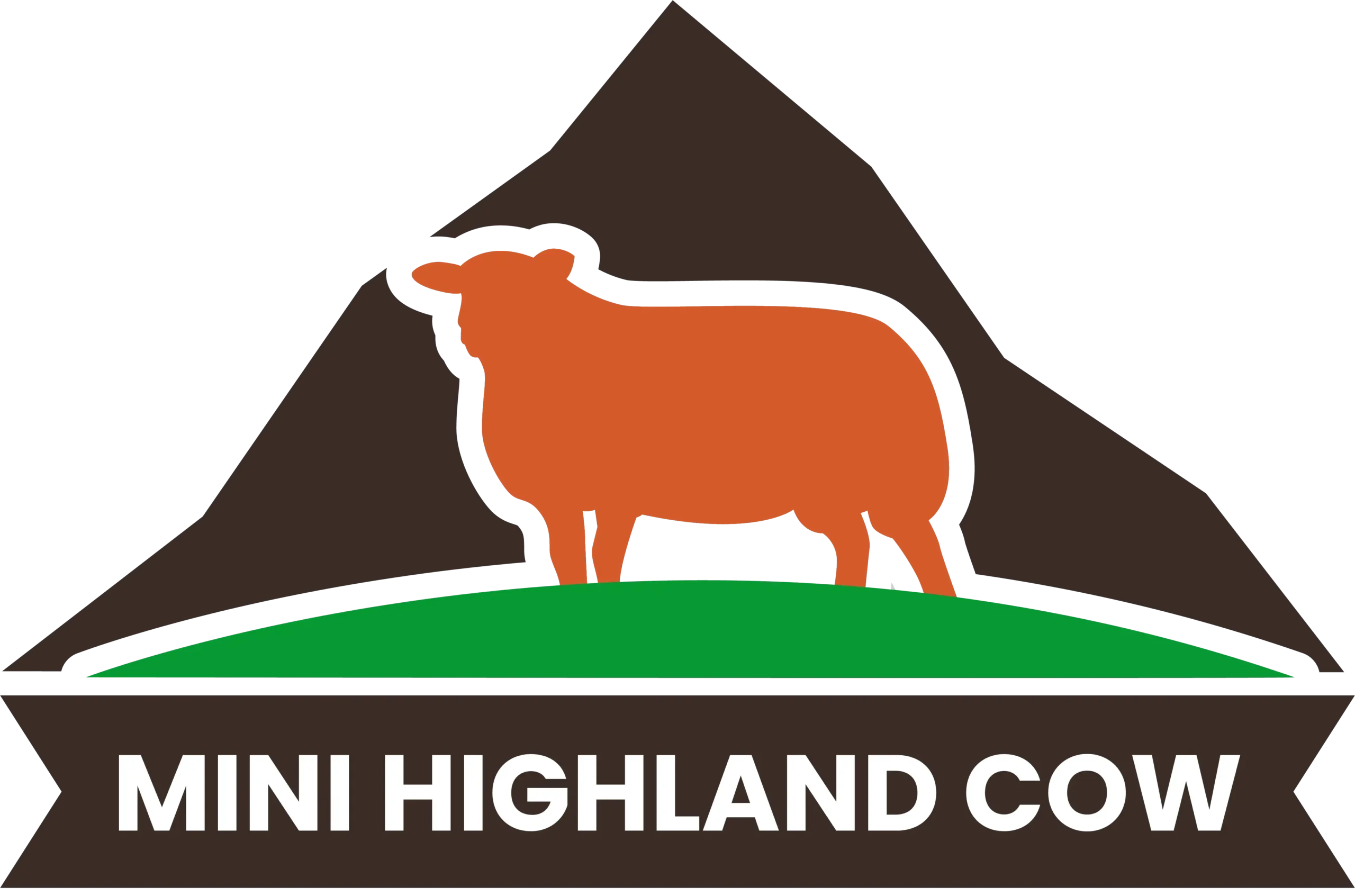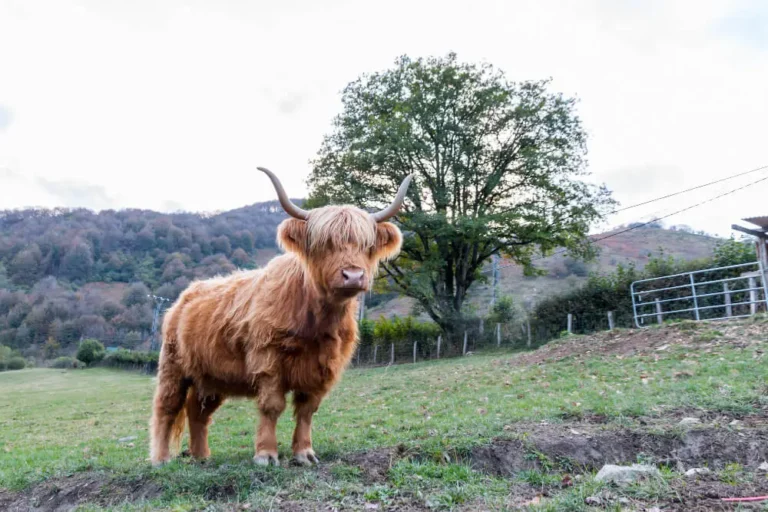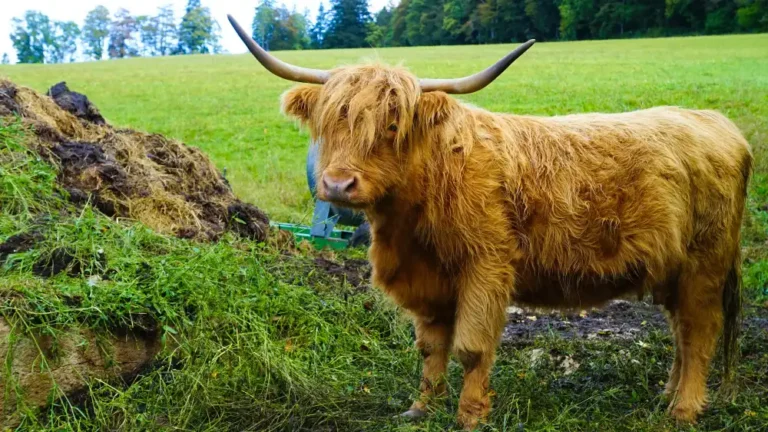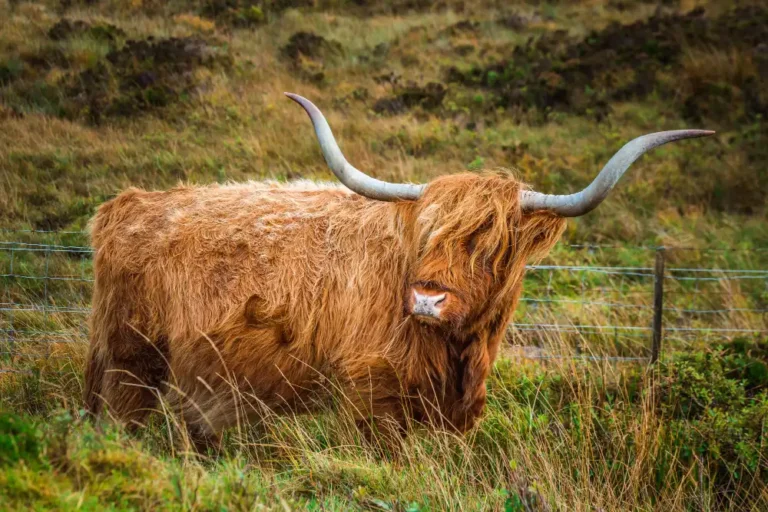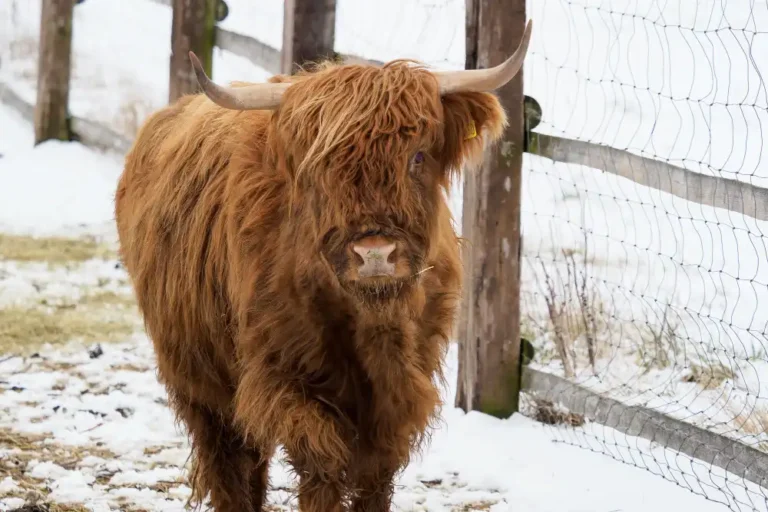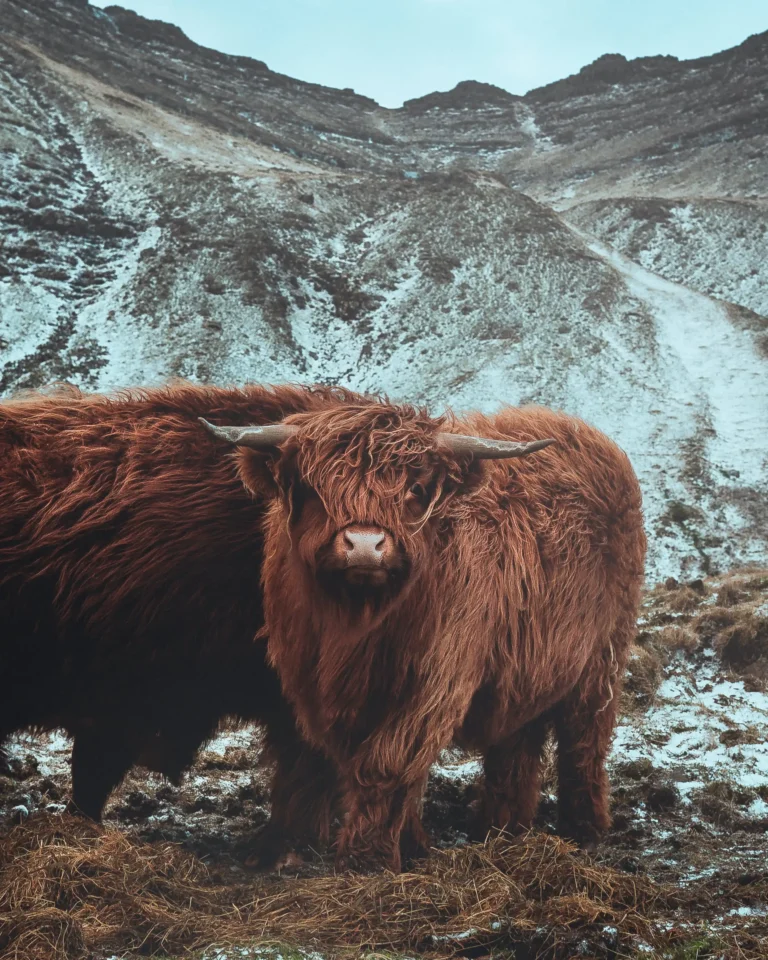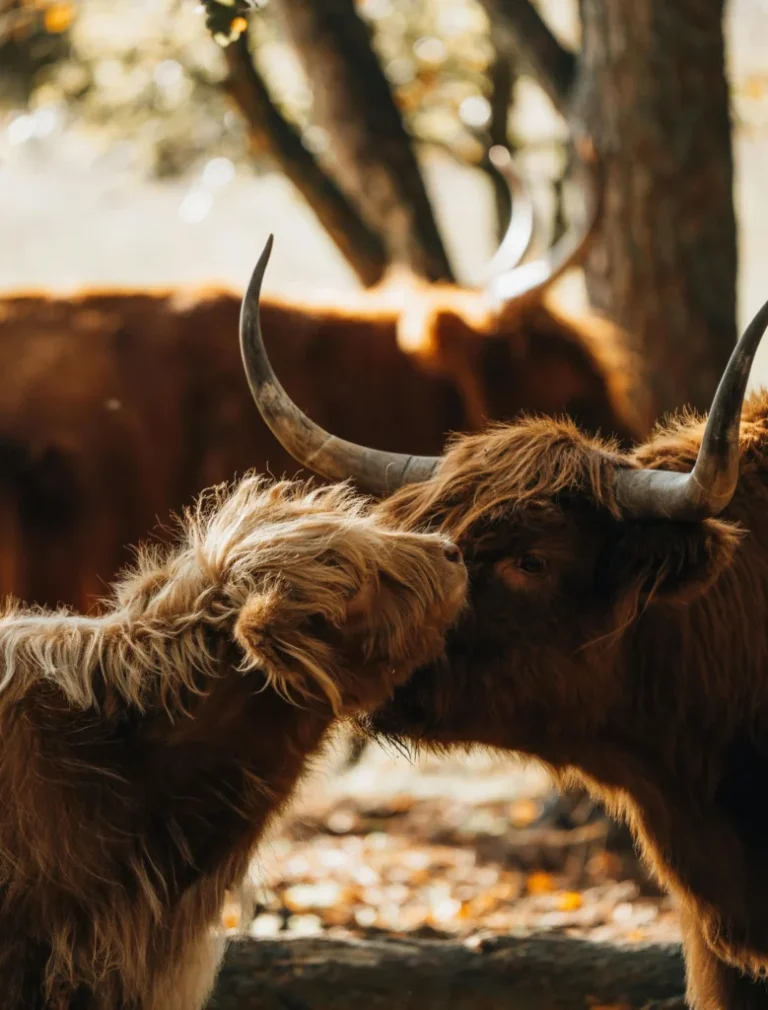Veterinary Care and Health Management of Mini Highland Cows
This article will cover everything you need to know about Mini Highland cows, from their size and diet to their care and health management. We’ll also give you some tips on caring for these lovely creatures.
So read on to learn all about Mini Highland cows!
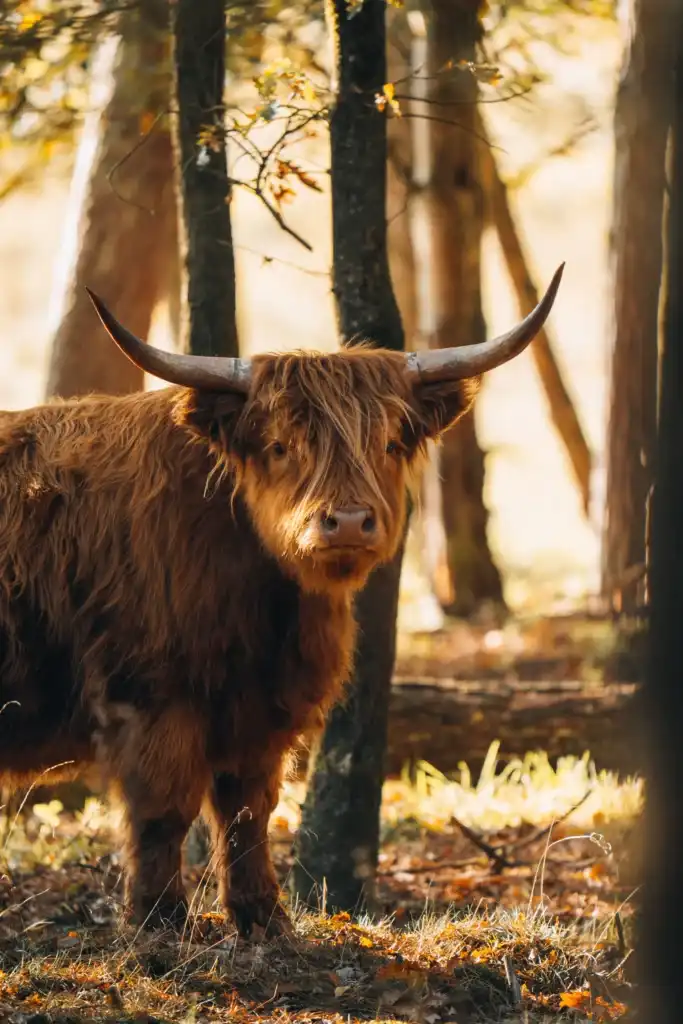
What are mini Highland cows?
Mini Highland cows are a smaller version of the traditional Highland cattle, a Scottish breed known for its long, shaggy coat and large horns. These cows have shorter legs and smaller heads than other cattle breeds, ranging from 36 to 42 inches in height on average.
These miniatures are bred to be significantly smaller than their full-sized counterparts, making them more suitable for smaller farms or as pets. Despite their reduced size, they retain the distinctive characteristics of the Highland breed, including their hardy nature and gentle temperament.
Mini Highland cows are a unique and petite breed of cattle renowned for their easy calving and adaptability to various climates. Unlike larger breeds such as the Galloway or Dexter cattle, Mini Highlands are bred for a smaller frame size, typically reaching only about half the height and weight of standard Highland cattle.
This smaller stature makes them more manageable and requires less space to move, making them an ideal choice for smaller farms or those with limited pastureland. These dexterous cattle are appreciated for their muscle quality and for producing small and robust offspring.
How do mini Highland cows differ from standard Highland cattle?
Mini Highland cows differ from standard Highland cattle primarily in size, as they are bred to be significantly smaller. While standard Highland cattle can weigh up to 1,800 pounds and stand around 4-5 feet tall at the shoulder, Mini Highlands are much lighter and shorter, typically not exceeding half the size of the standard breed.
Despite this size difference, these smaller cows retain many distinctive features of their larger counterparts, such as the long, shaggy coat, which can be of various colors, and the large, curved horns.
They also share the same gentle temperament and hardiness that makes Highland cattle popular. This smaller size makes Mini Highlands more manageable for small farms or as unique pets, and they require less grazing land compared to the standard Highland cattle.
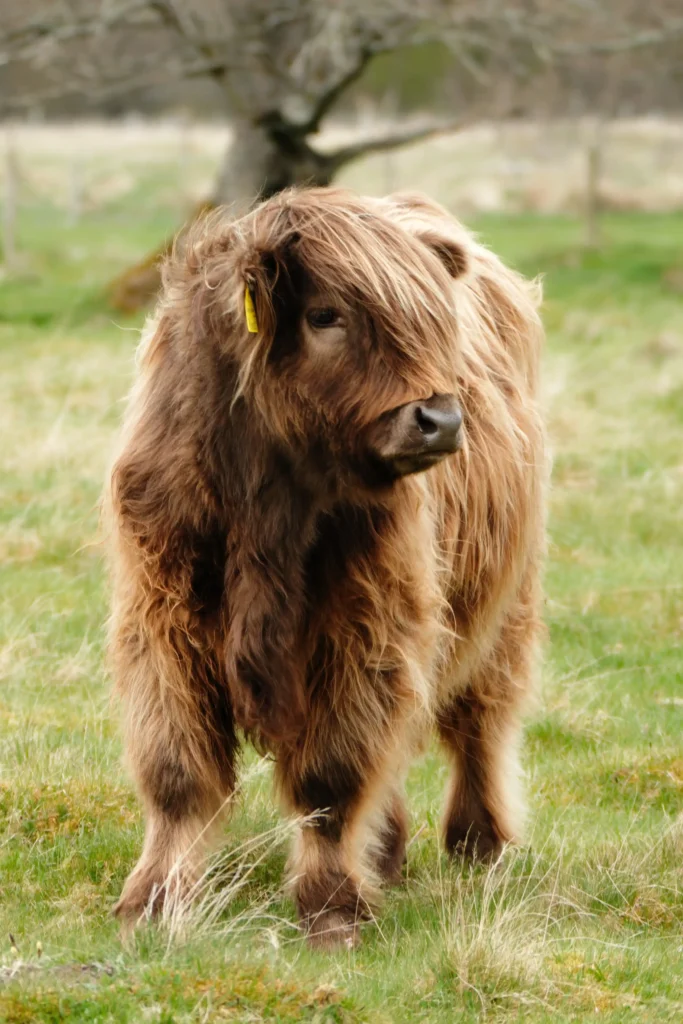
What specific dietary requirements do Mini Highland Cows have?
Like their larger Highland counterparts, these smaller animals are known for being hardy and adaptable to various diets. However, their specific dietary requirements must be tailored to their smaller size. These cows thrive on a diet primarily composed of quality grass and hay, which provides the necessary fiber for their digestive health.
They also require access to clean water and may need supplemental minerals and vitamins, especially in regions where the natural forage lacks certain nutrients. Due to their smaller stature, Mini Highlands consume less food than standard cattle, but their diet still needs to be carefully managed to prevent obesity, which can be a concern due to their less intensive grazing needs.
Regular veterinary check-ups are also essential to ensure they maintain optimal health and receive any additional dietary supplements as needed.
How do their nutritional needs differ from larger cattle breeds?
What are the routine veterinary care needs for Mini Highland?
Routine veterinary care for Mini Highland cows includes regular vaccinations, deworming, and health check-ups. Vaccinations are crucial to protect them from common bovine diseases such as Bovine Viral Diarrhea (BVD), Infectious Bovine Rhinotracheitis (IBR), and Leptospirosis.
Deworming, typically performed at least annually, is also essential to their care to prevent internal parasite infestations, which can affect their health and productivity. Regular health check-ups by a veterinarian are essential to monitor their overall health growth and to address any breed-specific issues like foot care due to their shaggy coats and horn management.
It’s also essential to ensure they have access to clean water and a diet that meets their nutritional needs to maintain their overall health and well-being. As with any livestock, the specific care regimen can vary based on local disease risks and the individual health needs of the cow.
How often should a veterinarian examine them?
Mini Highland cows should ideally be examined by a veterinarian at least once a year for routine health check-ups and vaccinations. More frequent visits may be necessary for specific health concerns, during breeding, or if unusual symptoms arise.
Regular veterinary care ensures they remain healthy and address potential issues early. It’s also an opportunity to consult on nutrition, parasite control, and general management.
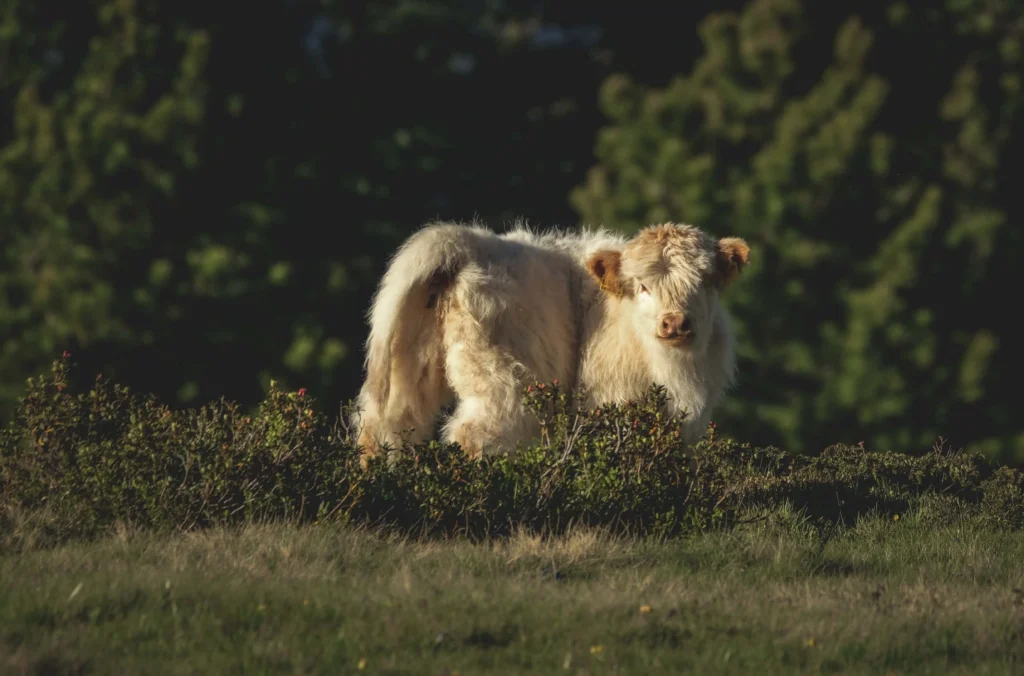
What housing and living conditions are ideal for their health and well-being?
Ideal housing and living conditions for these more miniature cattle include a spacious pasture for grazing and exercise, as their natural behavior includes foraging and roaming.
Considering their thick coats, shelter is essential to protect them from extreme weather conditions, be it harsh sun, rain, or snow. Their adaptability to various climates makes them versatile for farmers in different geographical locations.
The shelter should be well-ventilated, dry, and clean to prevent respiratory and other health problems. Fencing around the pasture should be secure to keep them safe. Access to fresh water and a diet suitable for their nutritional needs is also crucial. Maintaining their living environment to ensure cleanliness and safety is vital for their health and well-being.
Are there any special considerations for handling Mini Highland Cows to reduce stress and health risks?
When handling Mini cattle, it’s essential to approach them calmly and gently, as they respond best to a quiet and patient demeanor. These miniature cows are known for their docile temperament, but like all animals, they can become stressed with abrupt or aggressive handling.
Ensuring they are accustomed to human contact from a young age can greatly facilitate easier handling. Providing a routine they can become familiar with, including regular feeding and check-up times, also helps reduce stress.
Lastly, using proper livestock handling equipment and techniques and avoiding overcrowding in pens or transport is essential to minimizing health risks and stress.
Are there any particular reproductive health concerns in their breed?
Mini Highland cows, like all breeds, have specific reproductive health concerns that require attention. Due to their smaller size, they may have more difficulties during birth (dystocia), primarily if bred with larger breeds. Regular veterinary check-ups are essential during pregnancy to monitor the health of both the cow and the calf.
Breeding should be managed carefully to avoid overbreeding and to maintain the cow’s health. Providing adequate nutrition and care during pregnancy and lactation is essential to support the cow’s reproductive health and the calf’s development.
How does health management change as Mini Highland Cows age?
Mini Highland cows’ health management must be adjusted to address age-related concerns. Older cows may require a diet with adjusted nutrient levels, primarily to support joint health and digestion efficiency. Monitoring dental health becomes crucial as they age, as this can impact their ability to graze and digest food properly, including their milk production if they are dairy cows.
Regular veterinary check-ups become even more critical to detect and manage age-related issues such as arthritis or decreased immunity. Additionally, their living conditions might need modifications for easier access and comfort, ensuring they continue to thrive in their later years.
What special care do senior Mini Highland Cows require?
Senior Mini Highland cows require specialized care to address their aging needs. Considering their reduced physical activity, their diet may need adjustments for easier digestibility and maintaining proper weight. Regular veterinary check-ups are essential to monitor and manage age-related health issues such as arthritis, dental problems, or diminished sight.
Modifying their living environment, like providing softer bedding and more accessible feeding and watering areas, can significantly enhance their comfort. It’s also essential to monitor these smaller animals closely for signs of discomfort or illness, as older animals may not exhibit apparent symptoms until an issue is advanced.
How should owners prepare for health emergencies?
Owners should prepare for health emergencies by having a well-stocked veterinary first aid kit and familiarizing themselves with basic emergency care procedures. Establishing a relationship with a local veterinarian who is experienced with livestock and can provide emergency services is crucial.
Keeping detailed health records of each cow can aid veterinarians in making quick, informed decisions during emergencies. Training in recognizing early signs of illness or distress in their cows is essential for timely intervention. Additionally, if necessary, having a plan for transporting the cow to a veterinary clinic can save valuable time in critical situations.
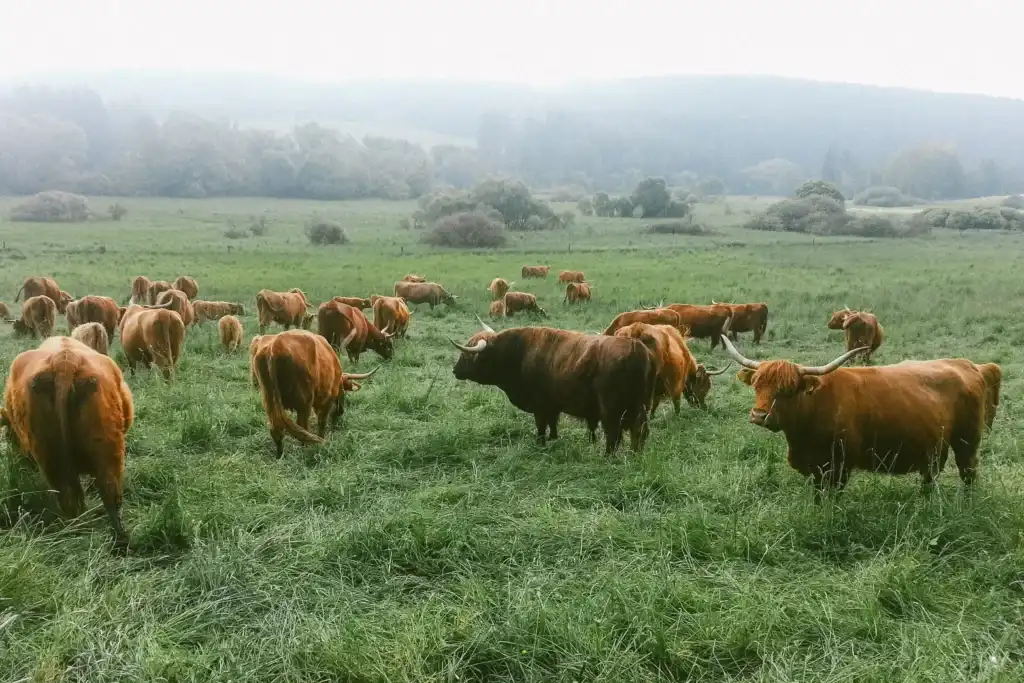
Conclusion
Mini Highland cows are a unique and charming breed that require specific care and management due to their smaller size. Owners must provide them with a balanced diet, appropriate housing, and routine veterinary care to ensure their health and well-being.
Particular attention should be given to their handling, reproductive health, and the changing needs as they age. Responsible ownership is crucial for preparing for health emergencies and maintaining a close relationship with veterinarians.
With proper care and attention, these miniature cows can be a delightful addition to small farms or as pets, offering both aesthetic appeal and companionship.
